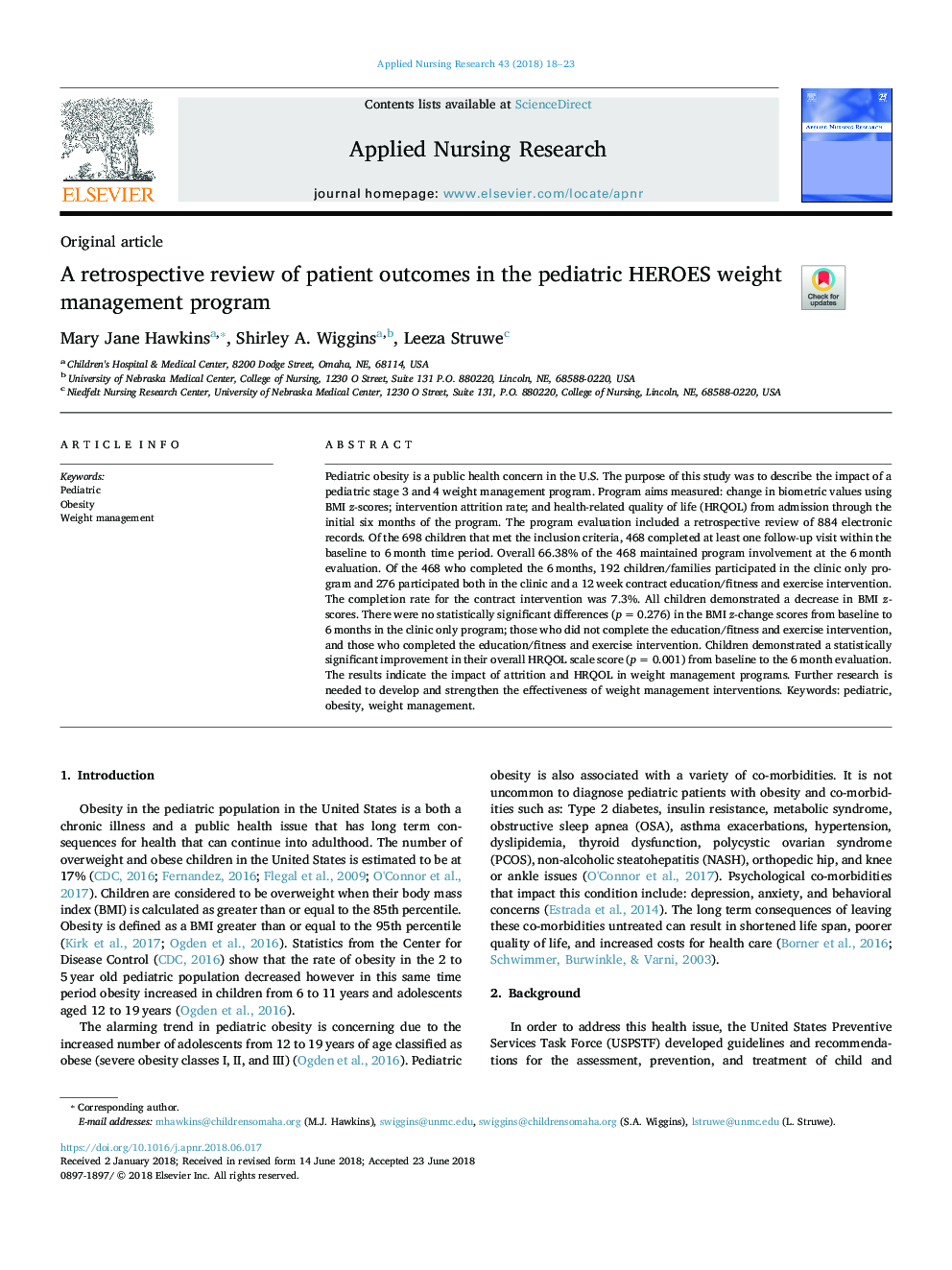| Article ID | Journal | Published Year | Pages | File Type |
|---|---|---|---|---|
| 8567415 | Applied Nursing Research | 2018 | 6 Pages |
Abstract
Pediatric obesity is a public health concern in the U.S. The purpose of this study was to describe the impact of a pediatric stage 3 and 4 weight management program. Program aims measured: change in biometric values using BMI z-scores; intervention attrition rate; and health-related quality of life (HRQOL) from admission through the initial six months of the program. The program evaluation included a retrospective review of 884 electronic records. Of the 698 children that met the inclusion criteria, 468 completed at least one follow-up visit within the baseline to 6â¯month time period. Overall 66.38% of the 468 maintained program involvement at the 6â¯month evaluation. Of the 468 who completed the 6â¯months, 192 children/families participated in the clinic only program and 276 participated both in the clinic and a 12â¯week contract education/fitness and exercise intervention. The completion rate for the contract intervention was 7.3%. All children demonstrated a decrease in BMI z-scores. There were no statistically significant differences (pâ¯=â¯0.276) in the BMI z-change scores from baseline to 6â¯months in the clinic only program; those who did not complete the education/fitness and exercise intervention, and those who completed the education/fitness and exercise intervention. Children demonstrated a statistically significant improvement in their overall HRQOL scale score (pâ¯=â¯0.001) from baseline to the 6â¯month evaluation. The results indicate the impact of attrition and HRQOL in weight management programs. Further research is needed to develop and strengthen the effectiveness of weight management interventions. Keywords: pediatric, obesity, weight management.
Keywords
Related Topics
Health Sciences
Nursing and Health Professions
Nursing
Authors
Mary Jane Hawkins, Shirley A. Wiggins, Leeza Struwe,
